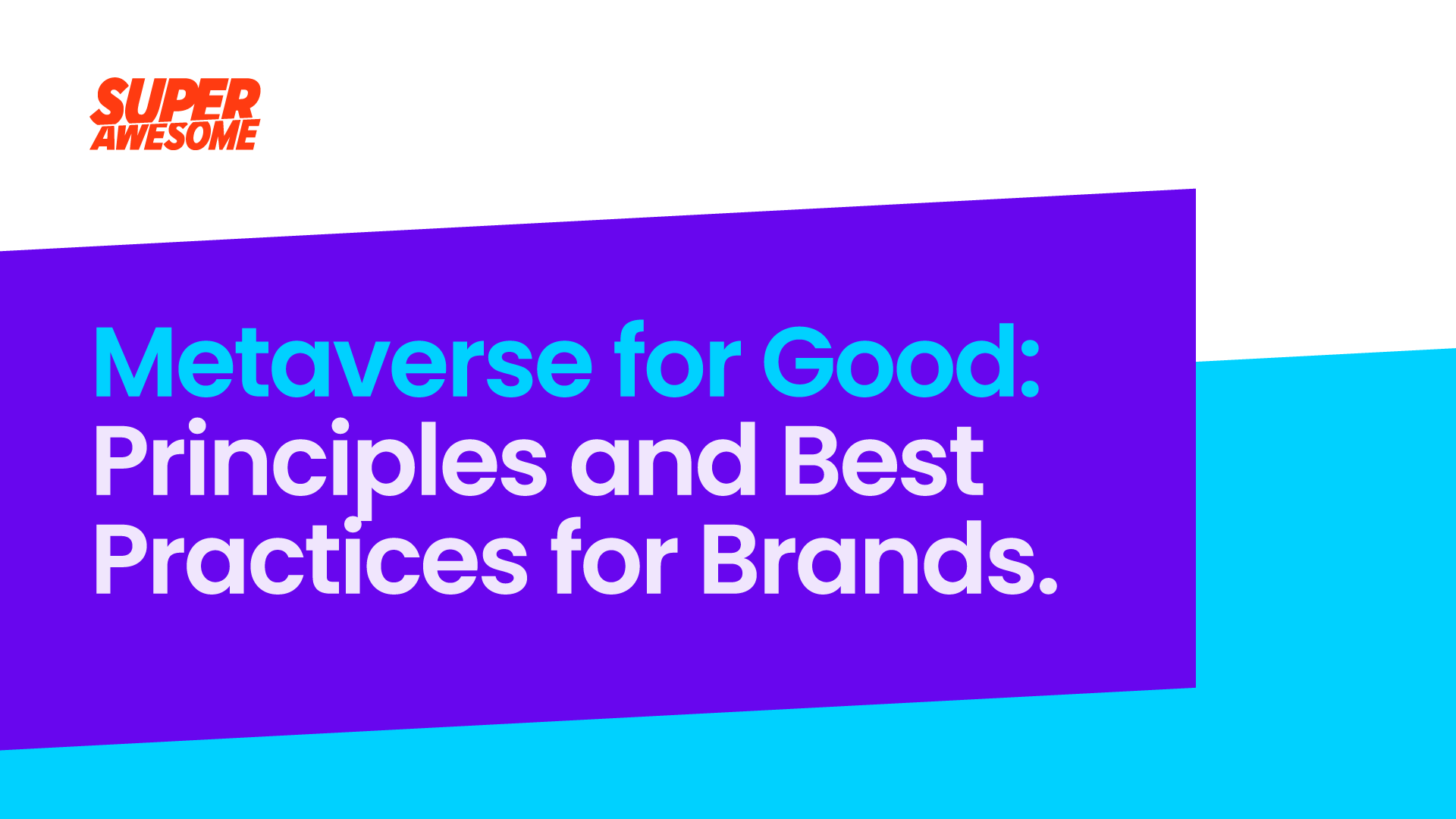1. A major consumer platform gets fined for kids data privacy breach in Europe under GDPR-K
In September, YouTube was fined $170m by the FTC for allowing kids personal data to be collected in a breach of the US COPPA law. Europe has a similar (but stricter) law called GDPR-K, which has the same protections but defines a child as up to the age of 16 in many countries (e.g. Germany, Ireland). There is currently an active investigation which has the potential to be magnitudinally more consequential than the COPPA decision.
Getting ahead: historically, brands have taken a practical approach to privacy, often rolling out global operating standards ahead of legislation. You should be planning for 16 as the de facto age of digital consent for privacy/contextual.
2. YouTube’s removal of behavioral monetization on kids content drives the growth of privacy-based advertising
Somewhere between $250m (PwC) and $500m (Loup Ventures) was being spent annually on YouTube to engage with kids using behavioral targeting. The kids digital ad market was already the biggest privacy-based ad sector globally. This influx of spending will take it to over a billion dollars in 2020.
Getting ahead: if your 2020 kids video engagement plans don’t look radically different from 2019, you need to get back to planning (either by finding a kids contextual targeting platform, or diversifying your video spend away from YouTube).
3. The spotlight of COPPA and kids digital privacy shifts to advertisers and agencies
In the recent COPPA amendment workshop, there was much discussion about expanding liability from publishers (who have increasingly limited control of how ads appear) to the ad delivery stack and originators of the ads: the brands and agency holding groups. This would be a significant, but certainly not illogical shift.
Getting ahead: probably the biggest risk for CMOs everywhere, the entire ad delivery chain for brands and agencies is going to come under unprecedented scrutiny. Your agency and teams need to be reading up on kidtech in January.
4. CCPA pushes COPPA towards 16 as the US age of digital consent
California’s digital privacy law is now in effect and effectively shifts the digital age of a child to 16. But COPPA’s definition remains (for now) at 13. Although CCPA doesn’t bring the same level of parental consent (this is still fixed at 13), the direction of travel towards an older age of a child (and thus a much larger privacy surface area) is clear.
Getting ahead: start planning for how your digital engagement partners (community, advertising etc) will change as a larger percentage of your audience come under digital privacy protections in the US
5. Game developers learn from YouTube and start planning a kids strategy
As the definition of ‘general audience’ continues to average ever-younger, the biggest games developers realise the need to change their thinking on kids. 2020 will see more large games publishers and developers implementing age gates, parental consent and additional screentime considerations.
Getting ahead: if you’re a major game developer, have you thought about adding parental consent to your game to enable kids?
6. Creators realise that YouTube sold them out to the FTC and take revenge via other platforms
Thousands of kids and family creators have woken up on January 1st realising that YouTube has unplugged them from the ecosystem which initially made them. The top 5% will be fine, but there is a very long tail who are angry and need a solution. This will drive the rise of underdog video creator platforms in 2020.
Getting ahead: this is the moment to lean into all creators outside of the top 5%, who have enough momentum.
7. Big Tech finally acknowledges kidtech
History is richly littered with technology companies who were late to respond to structural shifts. The rise of mobile was a classic case in point but it increasingly looks like kids (and their privacy) is the next major shift. Users are getting younger and require more privacy compliance. In 2020, we see big technology companies using the word ‘kidtech’.
Getting ahead: have you appointed an internal Chief Children’s Officer to ensure your products and services have taken kids’ usage into account?
8. Adults start wanting what their kids have
Thanks to COPPA, GDPR-K and other laws, kids have a much lower online tracking profile than five years ago. Historically, general audience data privacy laws have been difficult to pass, as it’s a pretty abstract concept. ‘Can I have a version of this for adults?’ will become a popular refrain in 2020.
Getting ahead: Have you factored digital privacy into your brand messaging for 2020?
9. The East v West battle for kids continues as TikTok acquires Snap
As TikTok continues to crush all other video platforms, American politicians and tech companies get increasingly spooked by Chinese ownership of US kids. In response, TikTok does a deal with a US tech company to solve for ownership concerns, acquiring Snap and their (US) public listing. Wildcard prediction: they appoint Scott Galloway as Chairman.
Getting ahead: All CMOs are familiar with brand safety but you need to start adding brand *integrity* diligence as well in your delivery platforms.
10. Family SVOD services start shifting to a hybrid subscription/advertising model
I have a long-standing bet with analyst Matthew Ball that major streaming video providers eventually begin to subsidise their subscription offerings with ad models (initially in non-core markets but ultimately everywhere as churn increases). I think we’ll begin to see evidence of this in 2020.
Getting ahead: it’s probably too soon to show investors yet (especially if you’re a public company) but CEOs should ask their analysts to start creating a secret spreadsheet which models a long-term hybrid revenue model (and the components required to enable it).
If you’re interested in staying on top of technology and kidtech news, we publish several kids industry newsletters which now have over 10k subscribers reading monthly. Sign up now!





